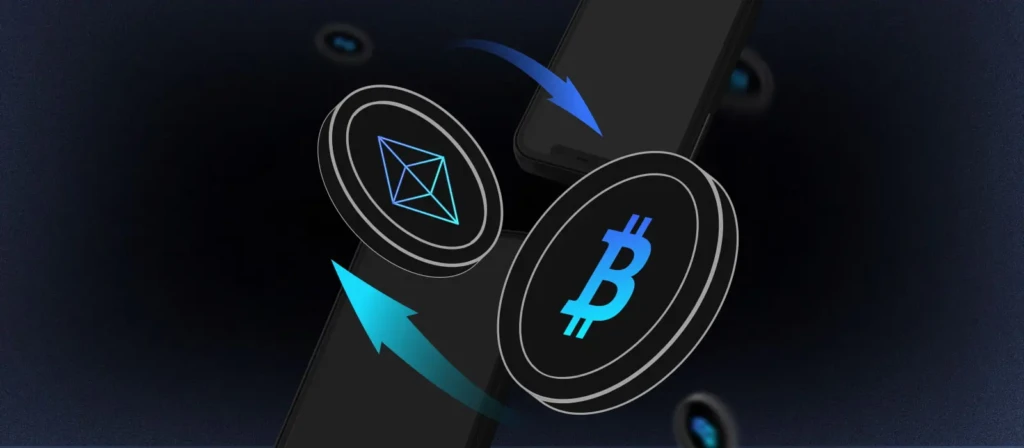What Is P2P Marketplace?
What is P2P marketplace and why has it become a central pillar of today’s digital economy? A peer-to-peer (P2P) marketplace is an online platform that enables individuals to buy, sell, or exchange goods and services directly with one another—without traditional intermediaries like wholesalers or big-box retailers. From Airbnb and eBay to decentralized crypto exchanges, P2P marketplaces represent a shift toward user-driven commerce where trust, technology, and community are at the core.
This investigative analysis explores how P2P marketplaces function, the economic forces behind their explosive growth, and what the future holds for this transformative business model.
How P2P Marketplaces Work
Direct Peer-to-Peer Connections
At their core, P2P marketplaces use technology to connect buyers and sellers directly. The platform provides listing tools, payment processing, dispute resolution, and reputation systems, but it does not own inventory. This model cuts overhead costs and empowers individuals to monetize assets or skills.
Revenue Models
Most platforms charge transaction fees, listing fees, or take a percentage of each sale. Some adopt a freemium approach, offering premium features such as promoted listings or enhanced analytics for a subscription fee.
Trust and Reputation
Trust is the currency of any P2P marketplace. Ratings, reviews, and verified profiles create transparency. For example Airbnb, highlights both guest and host feedback to ensure accountability on both sides of a transaction.
Key Types of P2P Marketplaces
Product Marketplaces
Platforms like eBay pioneered the model by allowing individuals to auction goods globally. Emerging players such as Facebook Marketplace continue to drive secondhand and local commerce.
Service Marketplaces
Gig-economy platforms—think Upwork or TaskRabbit—connect skilled freelancers with clients. These P2P marketplaces rely heavily on robust rating systems and secure escrow payments.
Financial Marketplaces
Peer-to-peer lending platforms and decentralized crypto exchanges allow direct lending or trading without traditional banks or brokers. Services like LendingClub illustrate how P2P lending disrupts conventional finance.
Economic and Social Impact
Lower Barriers to Entry
By removing middlemen, P2P marketplaces lower costs and democratize access to global markets. Anyone with a smartphone and an internet connection can become a seller or provider.
Circular Economy & Sustainability
The resale of goods promotes recycling and reduces waste. P2P resale of fashion and electronics contributes to a more sustainable consumer culture.
Regulatory Challenges
Because transactions occur between individuals, consumer protection and taxation can be complex. Governments worldwide are tightening regulations to ensure fair practices and to prevent fraud.
Risks and Challenges
While the P2P model offers freedom and efficiency, it also carries risks:
- Fraud & Scams: Without strong verification, marketplaces may be targets for fraudsters.
- Quality Control: Platforms struggle to guarantee product or service quality when they do not control inventory.
- Data Privacy: Handling personal data securely remains critical, particularly for cross-border transactions.
Technology Driving the Next Wave
Blockchain and Smart Contracts
Decentralized P2P marketplaces leverage blockchain to remove even the platform itself as an intermediary. Smart contracts can automate payments and enforce agreements transparently.
AI-Powered Matching
Artificial intelligence enables more precise buyer-seller matching and dynamic pricing, enhancing efficiency and user satisfaction.
Mobile-First Design
With global smartphone penetration exceeding 80%, mobile-friendly marketplaces are set to dominate emerging markets.
Best Practices for Participants
- Verify Profiles: Always check ratings, reviews, and identity verification.
- Use Platform Payments: Avoid off-platform deals to maintain protection.
- Understand Fees: Know the transaction costs and policies to avoid surprises.
FAQ: What Is P2P Marketplace?
Q1: What is P2P marketplace in simple terms?
A P2P marketplace is an online platform where individuals directly buy, sell, or exchange goods and services without a central retailer or wholesaler.
Q2: How does a P2P marketplace make money?
Most platforms earn revenue from transaction fees, listing fees, or premium subscription services offered to sellers.
Q3: What is P2P marketplace security like?
Security relies on user verification, escrow payments, encryption, and review systems, but users should still follow best practices to avoid scams.
Q4: Can a P2P marketplace operate globally?
Yes. Many P2P marketplaces such as eBay or Airbnb operate across borders, though local regulations and payment methods may vary.
Q5: What is the future of P2P marketplace models?
Experts predict growth in decentralized marketplaces powered by blockchain and AI, increasing autonomy and reducing transaction costs further.
Conclusion: The Future of P2P Marketplaces
What is P2P marketplace evolution telling us about the digital economy’s direction? Analysts foresee continuous expansion as consumers demand flexibility, affordability, and sustainability. Blockchain integration, AI-driven personalization, and improved regulatory frameworks will shape the next generation of peer-to-peer platforms. For entrepreneurs and consumers alike, the P2P marketplace remains not just a trend but a fundamental rethinking of how value is exchanged.

